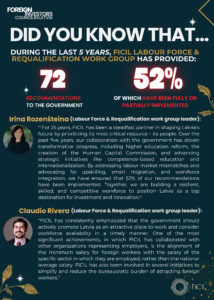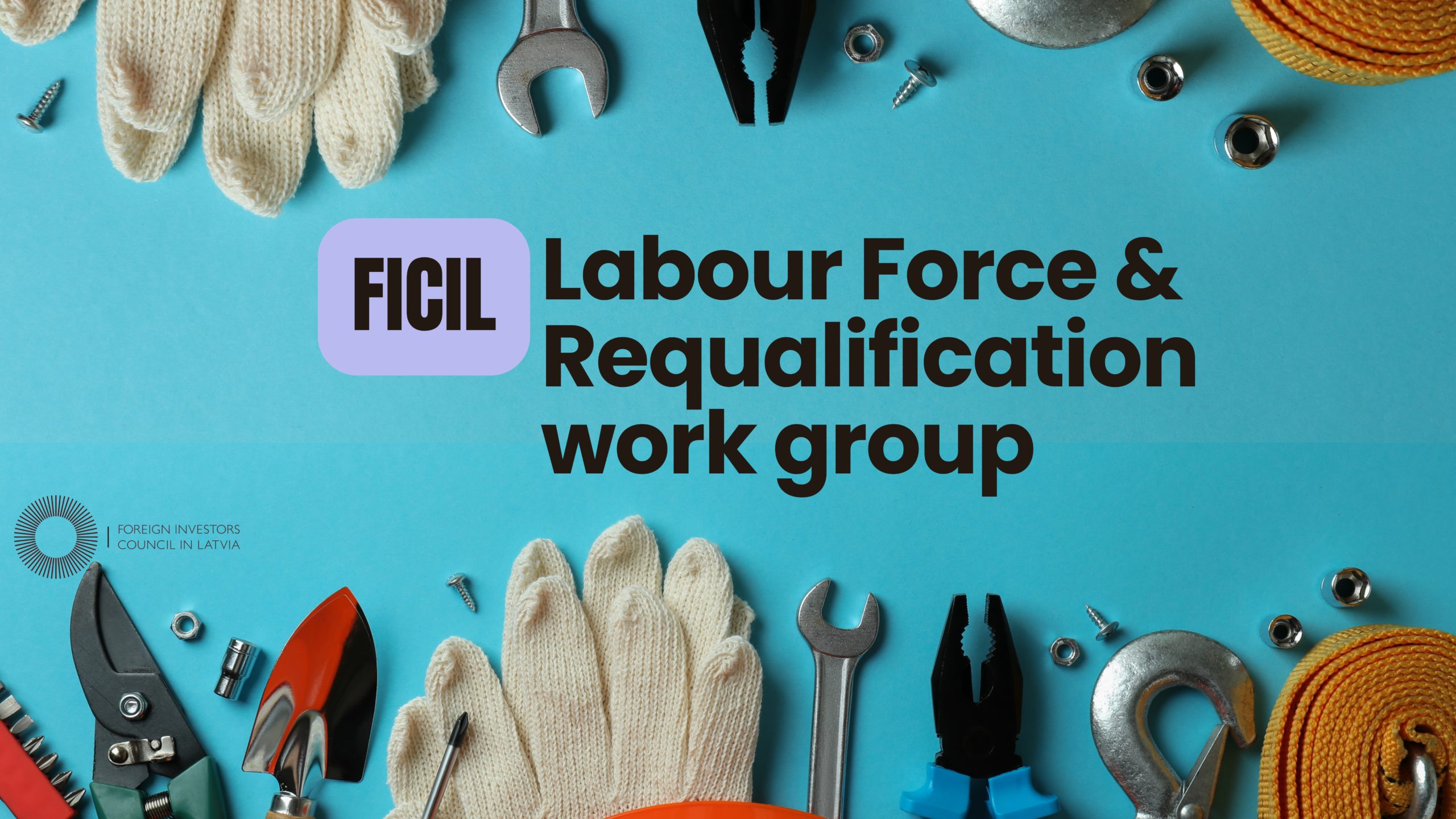For 25 years, the Foreign Investors’ Council in Latvia (FICIL) has been championing the labour force policy, as a cornerstone of the nation’s economic development. Workforce availability is not statistic – it is the lifeblood of Latvia’s economy in an ever-changing global market. As foreign investors weigh their decisions, the state of Latvia’s workforce remains a critical factor that influences their plans and commitments.
However, Latvia faces persistent market challenges: an aging population, a disconnect between skills and industry needs, and the ongoing emigration of skilled professionals seeking opportunities abroad. The FICIL Labour Force & Requalification Work Group, led by Irina Rozenšteina (Head of Employment Law Practice at Ellex Latvia) and Claudio Rivera (Associate Professor and BBA Director at Riga Business School), has been the driving force behind improving the country’s workforce market and education/training policies. For over a decade, this team has championed the need for human capital to be a top government priority, pushing for a dual approach that combines immediate interventions with long-term workforce strategies. Their primary focus has been to address the labour market mismatches, while positioning Latvia as a top destination for foreign investment.
Over the past five years, the Work Group has proposed 72 recommendations, with 38 – an impressive 52% – being either fully or partially implemented by the government. This success underscores FICIL’s role as a provider of effective solutions, from improving human capital governance to reviewing government-led education and training initiatives. Our advocacy consistently underscores one fundamental truth: Latvia’s greatest resource is its people.
Claudio Rivera emphasizes FICIL’s unwavering commitment: “For 25 years, FICIL has been a steadfast partner in shaping Latvia’s future by prioritizing its most critical resource – its people. Over the past five years, our collaboration with the government has driven transformative progress, including higher education reform, the creation of the Human Capital Commission, and advancing strategic initiatives like competence-based education and internationalization. By addressing labour market mismatches and advocating for upskilling, smart migration, and workforce integration, we have ensured that 52% of our recommendations have been implemented. Together, we are building a resilient, skilled, and competitive workforce to position Latvia as a top destination for investment and innovation.”
Irina Rozenšteina echoes this sentiment: “FICIL has consistently emphasized that the government should actively promote Latvia as an attractive place to work and consider workforce availability in a timely manner. One of the most significant achievements, in which FICIL has collaborated with other organizations representing employers, is the alignment of the minimum salary for foreign workers with the salary of the specific sector in which they are employed, rather than the national average salary. FICIL has also been involved in several initiatives to simplify and reduce the bureaucratic burden of attracting foreign workers.”
Beyond workforce attraction, FICIL has actively pushed for improvements in labour regulations, particularly in the monitoring of sick leave certificates and mandatory health check examinations. Some of our recommendations have already influenced policy changes, and we continue to advocate for further reforms to prevent abuse in these critical areas.
A major strength of FICIL lies in its ability to unite key stakeholders. The Work Group collaborates closely with the Ministries of Economics, Welfare, and Education and Science, as well as with social partners such as LDDK, LTRK, The Red Jackets, and LBAS. This engagement ensures that recommendations don’t just land on policymakers’ desks – they get implemented. FICIL has become an integral player in the Human Capital Development Council, actively shaping the Human Capital Development Plan drafted by the Ministry of Economics. Our recent labour law amendment proposals have sparked major discussions at the Council, showcasing their commitment to balancing worker welfare with business flexibility.
The significance of FICIL’s efforts is underscored by Latvia’s Minister for Welfare, Uldis Augulis: “Foreign investor contributions are an essential part of Latvia’s prosperity – they not only strengthen the economy but also foster social dialogue, ensuring long-term growth and well-being for all residents. We must continue to cultivate an even more mutual and understanding dialogue, grounded in awareness, well-being, and sustainability, to collectively build a prosperous society that benefits both businesses and every citizen of Latvia.”
As Latvia navigates a period of economic transformation, FICIL remains a steadfast advocate for impactful reforms in education, workforce training, and immigration policies. The past 25 years have seen significant achievements, but the journey is far from over. The FICIL Labour Force & Requalification Work Group continues to drive forward, ensuring Latvia’s workforce remains competitive on the global stage – ready to meet the demands of the future. but i want to make sure we write about ourselves



